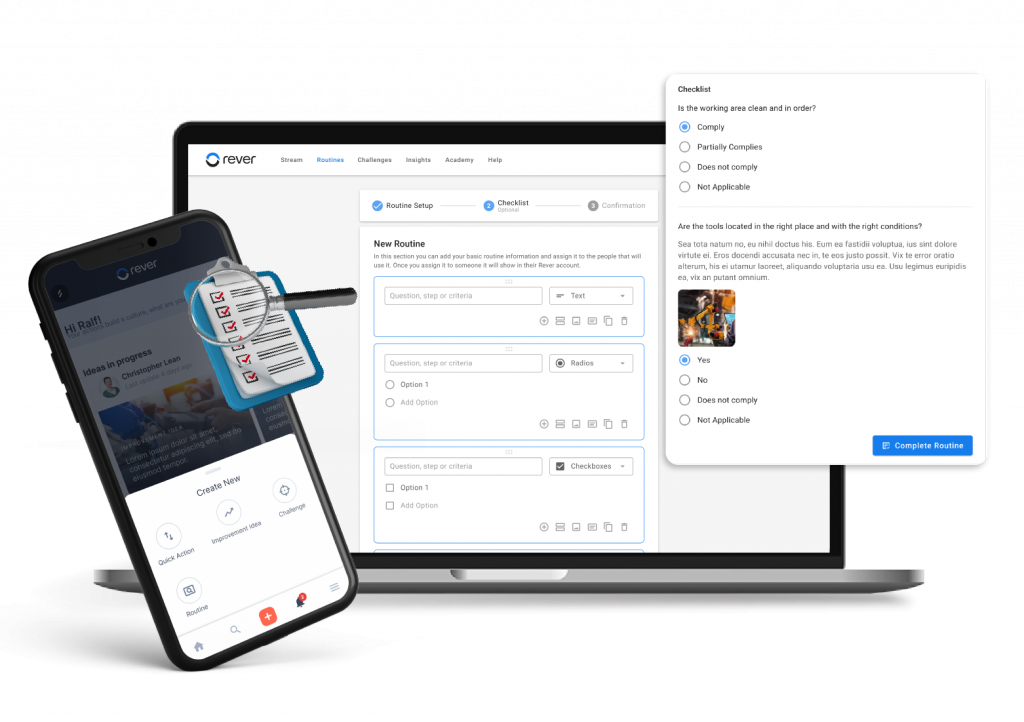10 Steps to creating effective digital checklists
2 minutes, 7 seconds read

Standardize and support your ongoing operational processes.
What is a Digital Checklist?
Digital Checklists document a process that can be made available to anyone, anywhere to standardize the execution and data capture of that process leveraging an electronic device.
A great checklist goes beyond just documenting a process. It enables employees to learn new skills quickly and perform their jobs better.
Why a Digital Checklist?
- Productivity – time, clarity, mobile-friendly
- Accuracy and Control – human error, simplify, consistency
- Accountability – audit trail, follow-up, recognizing
- Data Insights – capture, analysis, visibility
- Cost Control – printing, paper, storage, disposal, environment
10 Steps to Building an Effective Digital Checklist
1. Have a clear objective
- Communicate why this process is being performed.
- Define the goal this process serves.
- Identify the individuals performing the process.
2. What data do you need
- Define the exact data that needs to be captured.
- Understand the data analysis that needs to be done based on the process.
- Define the data, and the input values, that will trigger follow-up actions.
3. Know your audience
- Time available and environment in which they will complete the checklist.
- Appropriate language, such as technical terms, appropriate for the audience.
- Comfort level of your audience in interacting with technology.
4. Keep it simple
- Avoid walls of text. Keep it short.
- Make sure every step has a purpose.
- Use the appropriate language.
5. Be specific
- Leave no room for interpretation.
- Cover the details.
- Emphasize the most critical parts.
6. Use appropriate answer types
- Make it easy to provide the answer, observation, or mark completion.
- Provide a limited selection of answers, or a number, if data analysis will be required.
- Use free text only when data analysis will not be needed.
7. Use photos intelligently
- Remember a picture is worth a thousand words.
- Only add photos when they add value. Not for decoration.
- Keep pictures simple. Add additional pictures rather than one complicated picture.
8. Make it easy to navigate
- Follow a predictable order.
- Allow for visibility into past and future steps.
- Let users save their work and continue at a later time.
9. Test it before launching
- Have the checklist tested by representatives from your target audience.
- Simulate real-life conditions as best as possible.
- Follow a consistent ‘go-live’ process.
10. Update regularly
- Allow for an easy way for users to provide feedback.
- Validate feedback with other users.
- Incorporate feedback regularly.
Video: 10 Steps to creating effective digital checklists
To learn more about Rever:
Like this content? Sign up for our Newsletter
[hubspot type=form portal=561211 id=fda6d445-739e-4072-8dae-68b94971a266]THE FRONTLINE DOJO
More Articles
How to develop the next billion Knowledge Workers
3 minutes, 51 seconds read
Digital transformation in manufacturing is not what you think it is
10 minutes, 36 seconds read
The human side of change management: lessons learned from Toyota, Airbus, and Silicon Valley
1 minute, 28 seconds read
The true meaning of Genchi Genbutsu
3 minutes, 5 seconds read
